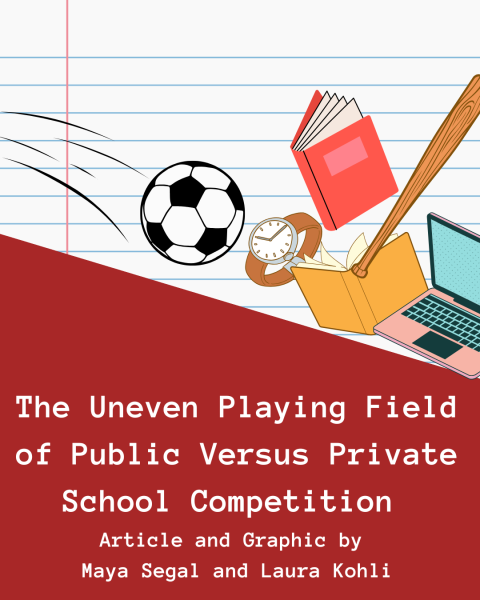Eagles Go Green: 5 Ways to Practice Sustainability at Home
Whether it’s increased temperatures worldwide, the rising of ocean levels, declining freshwater supplies, greater intensity and occurrences of natural disasters, or all around too much carbon dioxide, climate change is happening, and it’s not just a coincidence. Climate change is global warming caused by industrialization and emissions of greenhouse gasses by humans who have become too reliant on fossil fuels as their energy source. The primary reason why climate change is a constant problem for the Earth and the organisms on it is because of the largest corporations being associated with the fossil fuel industry. Devastatingly, the only solution to this is system and policy change, and in order to achieve that, the leaders of countries need to believe that this is a problem. In addition, corporations that profit off of the fossil fuel industry must be willing to take a chance and invest in technology that will eliminate the usage of fossil fuels.
Although these corporations are the main contributing factor, the presence of climate change is also affected by students like us. Littering, overuse of water, using great amounts of plastic products, and much more also contribute to climate change. People from all over the world are challenging themselves with a relatively new trend called Zero-Waste Living. These people find various ways to reuse anything they can to reduce the amount of waste they produce and minimize their carbon footprint. This trend has gotten so many positive results from participants and is many people’s final goal in living sustainably. If you want to minimize your carbon footprint, you can start off small with this 5 day challenge to put yourself on the right path into practicing a sustainable lifestyle! If you complete the challenge, try to incorporate these actions into your everyday life and you will breathe in the knowledge that you are helping the Earth, even if it’s just a little.
Day 1- Reduce the amount of water you use
Only 3% of Earth’s water is freshwater and each human uses an estimated 80 to 100 gallons of water daily. We also share this planet with many other organisms that rely on freshwater too, so it is very important that we conserve our freshwater resources. Some ways you can do this include:
- Taking shorter showers/switching to baths
- Turning off the water while scrubbing your hands (when washing)
- Turning off the water while brushing your teeth
- Turning off the water when shaving
- Re-wearing slightly used clothes
- Reduce the amount of times you flush the toilet: “If it’s brown flush it down, if it’s yellow let it mellow”
Day 2- Recycling!
You may have heard of the phrase “Reduce, Reuse, Recycle.” When you recycle, you are taking things that you have already used and giving them an entire new life by being made into something else! For example, you may have seen pencils that say “made from recycled newspaper.” Recycling is great because it is a cycle: you use one object and that will be made into another object and that object can potentially be recycled for a second time, becoming an entirely new object! Here are some things that are easy to recycle:
- Soda bottles, but make sure you wash them out first
- Glass
- Plastic bags, but these must be recycled separately
- Clean cardboard, but no pizza boxes
- Paper
- Plastics that have the recycling symbol on them
Be sure to wash anything out that has residue on it before you recycle it. The recycling centers will not be able to recycle your items if they do.
Day 3- DIY grocery bags or switching to paper
In the U.S., an estimated 100 billion plastic bags are thrown out yearly, with only 1 to 2 percent being recycled. Although you cannot recycle plastic bags in your curbside recycling bin, most local retail stores collect plastic grocery bags for recycling. Any item with the How2Recycle Store Drop-Off label can be recycled that way. When going to the store, check to see if there are paper bags available for bagging. These are easily recyclable! You could also use a tote bag or even make your own. Here is a link to a video on how to make a “No Sew DIY Produce Bag”:
https://www.youtube.com/watch?v=iWVhvXThzLw&feature=youtu.be
Day 4- Composting!
Compost is organic matter that has been decomposed over time. As it recycles these materials, it creates a soil conditioner. Composting is a great way to reuse your food scraps instead of letting them end up in the landfill. You can also reuse this soil for your garden! Here are the three essential materials you need to create your compost:
- Green material- fruit peelings, fruit cores, coffee grounds, egg shells, or any food that isn’t meat or is greasy. Also, grass clippings, weeds, and leaves should be included.
- Brown material- sawdust, twigs/ branches, or straw
- Water- speaks for itself. Without moisture, it will take a very long time for the compost to do anything.
You should turn your pile from the outside in, once every week. This just means you take your shovel and push the outer parts towards the middle until the contents of the compost are rearranged.
Day 5- Switch to Sustainable Products
This is placed as the last day’s task because sustainable products can get incredibly expensive and many of us are not able to afford products like these. If you are able to, I highly recommend switching to them! Things like plastic straws, toothbrushes, and water bottles cause a lot of the pollution on Earth, but especially in the oceans. These are also some of the cheaper things you can buy sustainably. Now, many places sell bamboo straws, bamboo toothbrushes, and even bamboo water bottles. If not bamboo, there are many other options that aren’t plastic that you can choose from. Anything reusable in this category is good!
There are so many things to be overwhelmed with in this life. Making a choice to alter one behavior in your daily life to help the Earth can impact your own life in ways you never thought possible. Be kind to the Earth and be kind to yourself.
Your donation will support the student journalists of Enloe Magnet High School, allowing us to cover our annual website costs. We are extremely grateful for any contribution, big or small!

(She/her)
Dae Borg is a senior who has a love for the Earth, wildlife, the arts, and meeting new people. She enjoys writing about global environmental...












Nikunj • Feb 2, 2021 at 7:29 AM
Recycling is useful for us in many ways and helps to prevent pollution. Products such as plastic bags, cardboard, bottles, glass, etc. can be recycled for a better purpose. Read more: https://www.sequoia-global.com/waste-fuel-recycling/